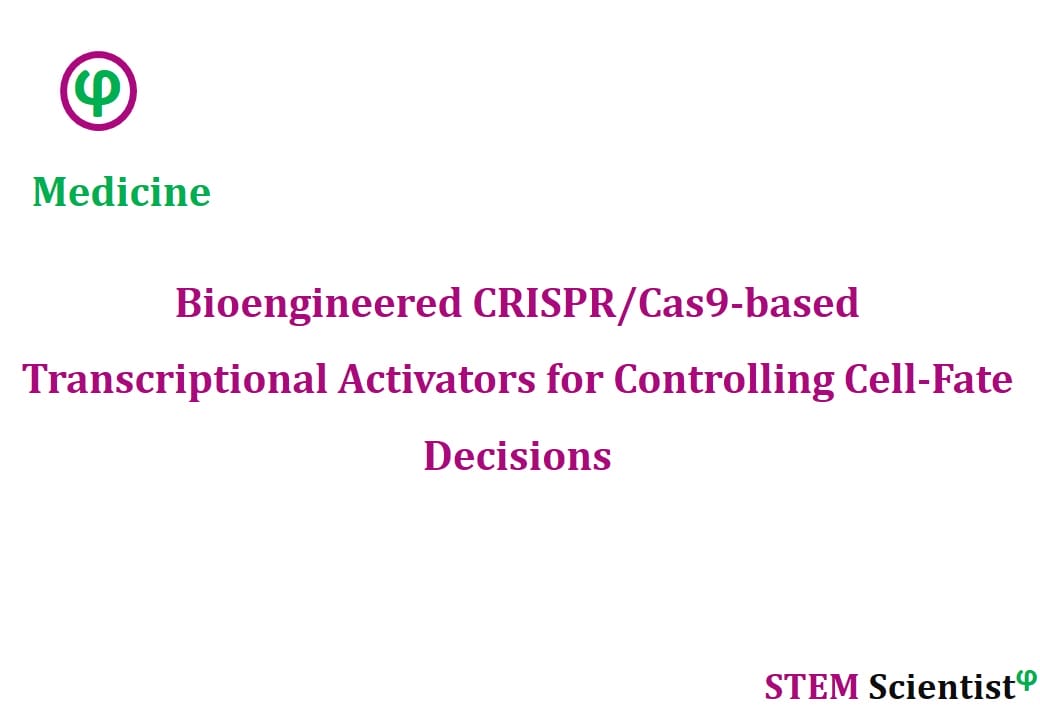
The following study was conducted by Scientists from University Program in Genetics and Genomics, Duke University Medical Center, Durham, USA; Center for Advanced Genomic Technologies, Duke University, Durham, USA; Department of Biomedical Engineering, Duke University, Durham, USA; Department of Surgery, Duke University Medical Center, Durham, USA. Study is published in Stem Cell Reports Journal – Cell Press Publishing as detailed below.
Stem Cell Reports Journal – Cell Press Publishing (2020)
Myogenic Progenitor Cell Lineage Specification by CRISPR/Cas9-Based Transcriptional Activators
Highlights
- CRISPR activation generates myogenic progenitors from human iPSCs/ESCs
- Activation of endogenous PAX7 leads to autonomously maintained gene expression
- Endogenous activation outperforms cDNA expression in generating a stable phenotype
- CRISPRa myogenic progenitors engraft and regenerate muscle fibers in vivo in mice
Summary
Engineered CRISPR/Cas9-based transcriptional activators can potently and specifically activate endogenous fate-determining genes to direct differentiation of pluripotent stem cells. Here, we demonstrate that endogenous activation of the PAX7 transcription factor results in stable epigenetic remodeling and differentiates human pluripotent stem cells into skeletal myogenic progenitor cells. Compared with exogenous overexpression of PAX7 cDNA, we find that endogenous activation results in the generation of more proliferative myogenic progenitors that can maintain PAX7 expression over multiple passages in serum-free conditions while preserving the capacity for terminal myogenic differentiation. Transplantation of human myogenic progenitors derived from endogenous activation of PAX7 into immunodeficient mice resulted in a greater number of human dystrophin+ myofibers compared with exogenous PAX7 overexpression. RNA-sequencing analysis also revealed transcriptome-wide differences between myogenic progenitors generated via CRISPR-based endogenous activation of PAX7 and exogenous PAX7 cDNA overexpression. These studies demonstrate the utility of CRISPR/Cas9-based transcriptional activators for controlling cell-fate decisions.
Source:
Stem Cell Reports Journal – Cell Press Publishing
URL: https://www.cell.com/stem-cell-reports/fulltext/S2213-6711(20)30116-8
Citation:
Kwon, J. B., A. Vankara, et al. (2020). “Myogenic Progenitor Cell Lineage Specification by CRISPR/Cas9-Based Transcriptional Activators.” Stem Cell Reports 14(5): 755-769.


